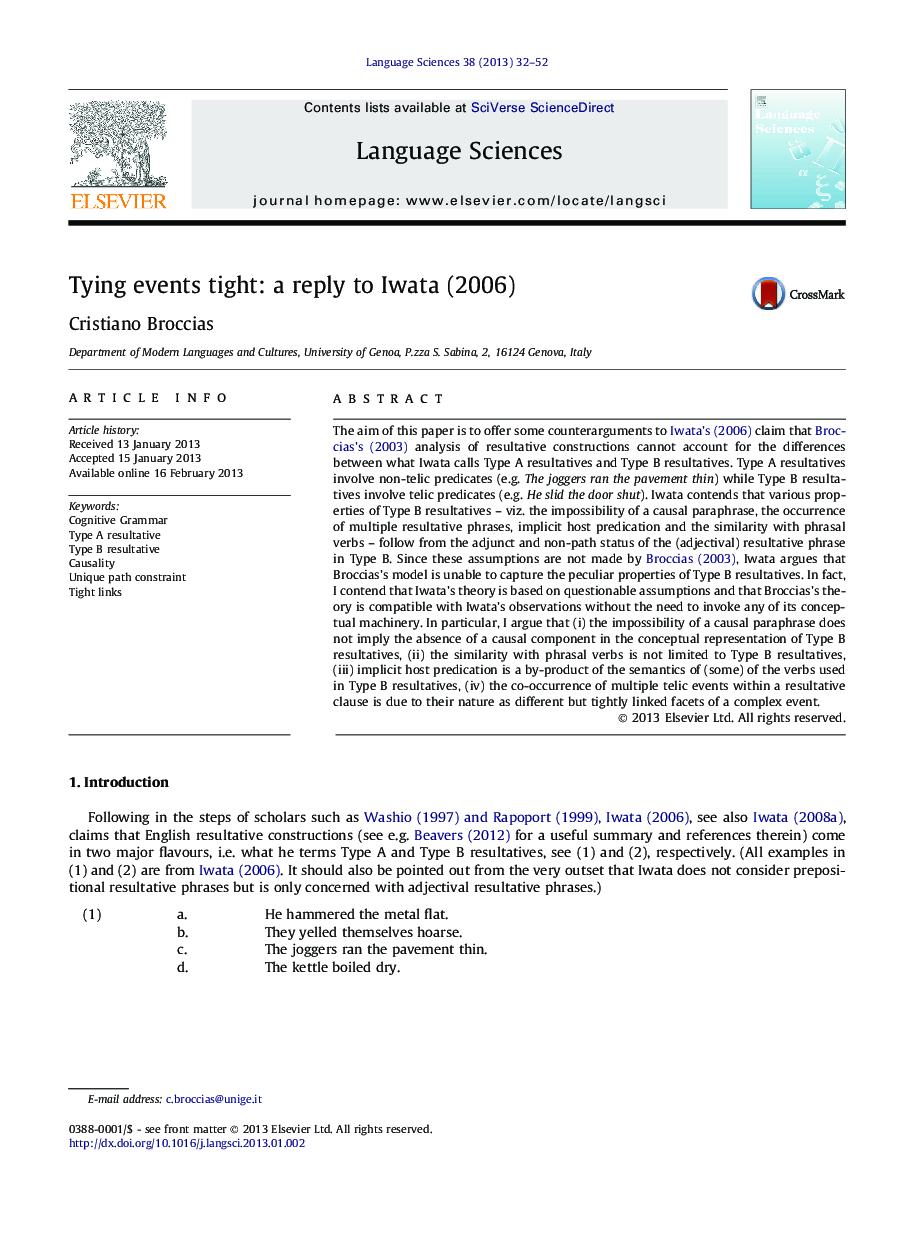| کد مقاله | کد نشریه | سال انتشار | مقاله انگلیسی | نسخه تمام متن |
|---|---|---|---|---|
| 1103209 | 1488161 | 2013 | 21 صفحه PDF | دانلود رایگان |

The aim of this paper is to offer some counterarguments to Iwata’s (2006) claim that Broccias’s (2003) analysis of resultative constructions cannot account for the differences between what Iwata calls Type A resultatives and Type B resultatives. Type A resultatives involve non-telic predicates (e.g. The joggers ran the pavement thin) while Type B resultatives involve telic predicates (e.g. He slid the door shut). Iwata contends that various properties of Type B resultatives – viz. the impossibility of a causal paraphrase, the occurrence of multiple resultative phrases, implicit host predication and the similarity with phrasal verbs – follow from the adjunct and non-path status of the (adjectival) resultative phrase in Type B. Since these assumptions are not made by Broccias (2003), Iwata argues that Broccias’s model is unable to capture the peculiar properties of Type B resultatives. In fact, I contend that Iwata’s theory is based on questionable assumptions and that Broccias’s theory is compatible with Iwata’s observations without the need to invoke any of its conceptual machinery. In particular, I argue that (i) the impossibility of a causal paraphrase does not imply the absence of a causal component in the conceptual representation of Type B resultatives, (ii) the similarity with phrasal verbs is not limited to Type B resultatives, (iii) implicit host predication is a by-product of the semantics of (some) of the verbs used in Type B resultatives, (iv) the co-occurrence of multiple telic events within a resultative clause is due to their nature as different but tightly linked facets of a complex event.
► A response to Iwata’s (2006) criticism of Broccias (2003) is offered.
► It is shown that Iwata’s assumptions concerning Type B resultatives are problematic.
► Cases which are neither of Type A nor of Type B are discussed.
► The notion of “tight links” is introduced to account for a variety of data.
Journal: Language Sciences - Volume 38, July 2013, Pages 32–52